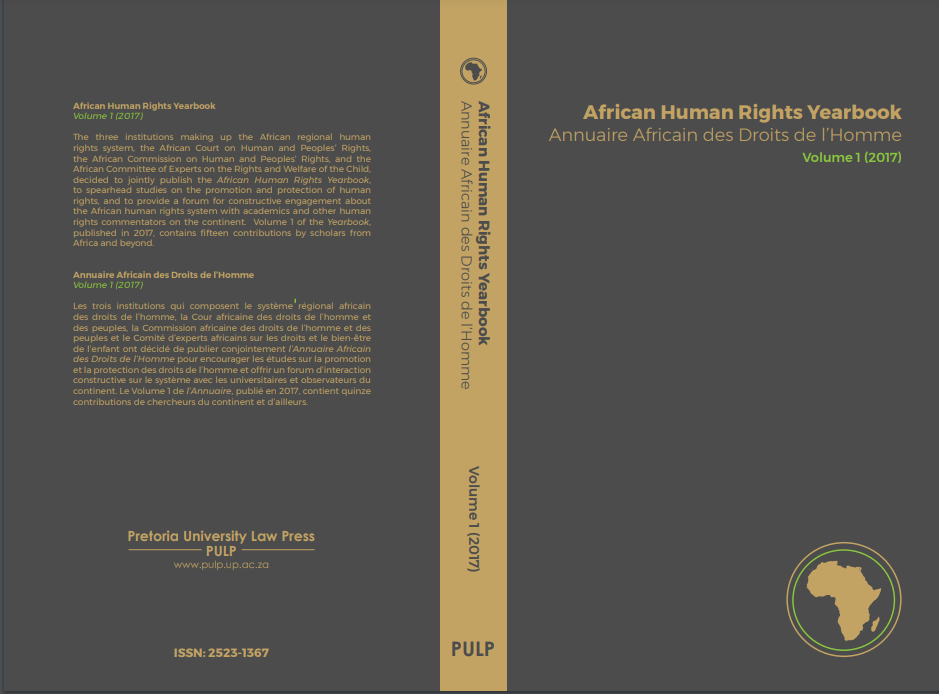Inclusive dialogue, freedom of speech in Rwanda and the milestone decision of the African Court in the matter of Victoire Ingabire Umuhoza v Republic of Rwanda
DOI:
https://doi.org/10.29053/2523-1367/2018/v2n1a20Keywords:
free speech, post-genocide, inclusive dialogue, Ingabire, RwandaAbstract
ABSTRACT: As the first decision of the African Court on Human and Peoples’ Rights on the interpretation of human rights and, specifically, on freedom of speech in a post-genocide context, the case of Victoire Ingabire Umuhoza v the Republic of Rwanda (Ingabire decision) sets an important judicial precedent and standard for Africa. It is significant for the application of human rights and democratic principles in post-genocide contexts and their relevance for sustainable peace-building processes. This article discusses those aspects of the Ingabire decision relating to freedom of speech within the framework of the African Charter and within Rwanda’s National dialogue framework. It highlights the tensions between the Court’s liberal standard for freedom of expression and the conservative standard underpinned by Rwanda’s state-driven approach to dialogue and social cohesion. The article argues that despite the liberal approach to free speech it applied in the Ingabire decision, the African Court did not map out a clear standard, which might be based on as a national guide for balancing free speech rights and necessary restrictions on it in post-genocide contexts and contexts of post-ethnic-based violence; further that in the specific case of Rwanda, this omission presents a challenge to an effective, inclusive national dialogue framework and for peace building.
TITRE ET RÉSUMÉ EN FRANCAIS: Dialogue inclusif, liberté d’expression au Rwanda et décision de la Cour africaine dans l’affaire Victoire Ingabire Umuhoza c. République du Rwanda
RÉSUMÉ: En tant que première décision de la Cour africaine des droits de l’homme et des peuples sur l’interprétation des droits de l’homme et, en particulier, sur la liberté d’expression dans le contexte de l’après-génocide, l’affaire Victoire Ingabire Umuhoza c. République du Rwanda (décision Ingabire) crée un précédent judiciaire et un standard importants pour l’Afrique. Cette décision est importante pour l’application des droits de l’homme et des principes démocratiques dans les contextes post-génocide et leur pertinence pour des processus durables de consolidation de la paix. Cet article traite des aspects de la décision Ingabire relatifs à la liberté d’expression dans les cadres de la Charte africaine et du dialogue national rwandais. Il met en exergue les tensions entre le raisonnement libéral de la Cour en matière de liberté d’expression et l’approche conservatrice étayée par la position du Rwanda en matière de dialogue et de cohésion sociale. L’article affirme qu’en dépit de l’approche libérale de la liberté d’expression qu’il a appliquée dans la décision Ingabire, la Cour africaine n’a pas défini de norme claire, qui pourrait être basée sur un guide national visant à établir un équilibre entre le droit à la liberté d’expression et les restrictions nécessaires dans les contextes de génocide et de violence post-ethnique. En outre, dans le cas spécifique du Rwanda, cette omission constitue un défi pour un cadre de dialogue national efficace et inclusif et pour la consolidation de la paix.


